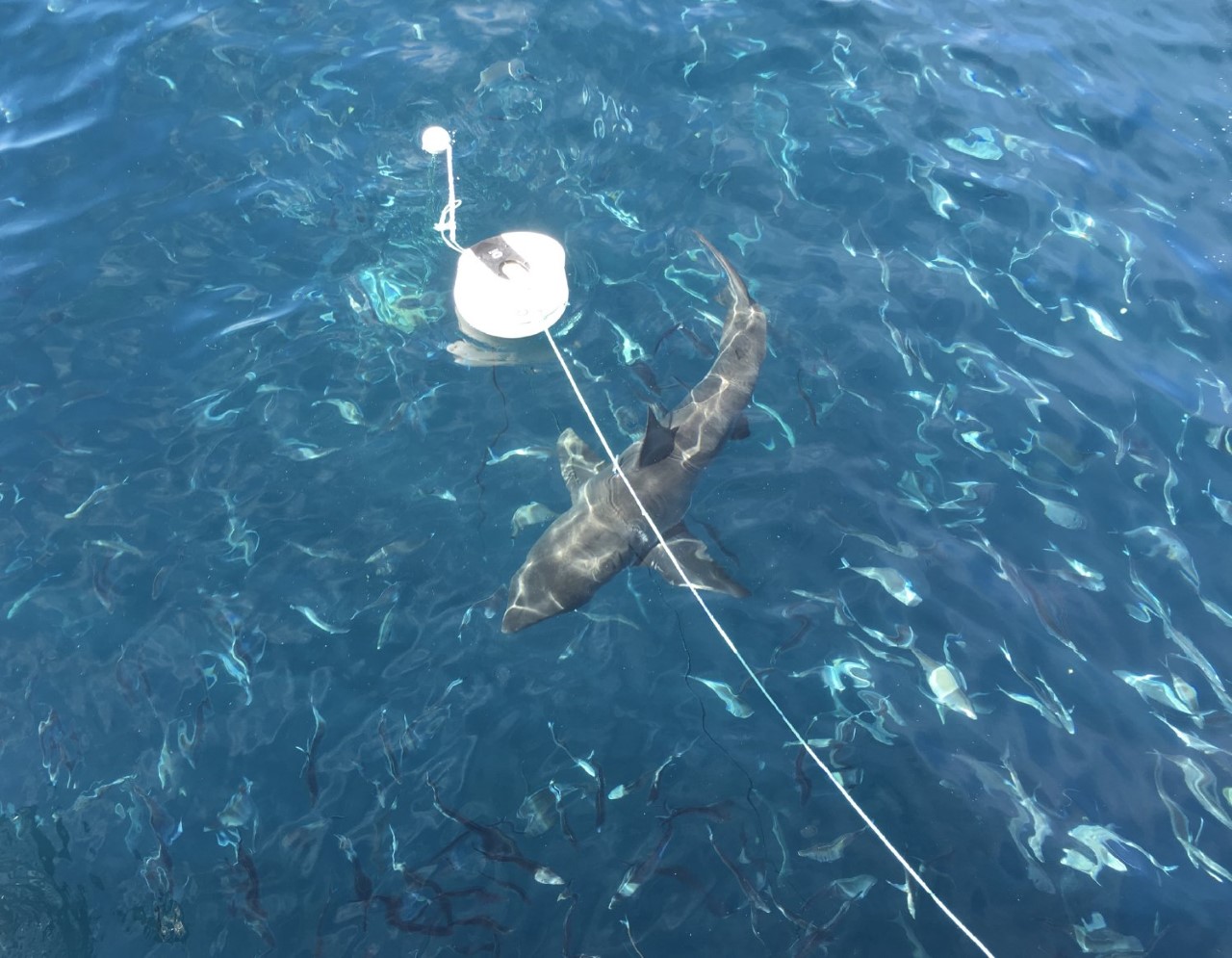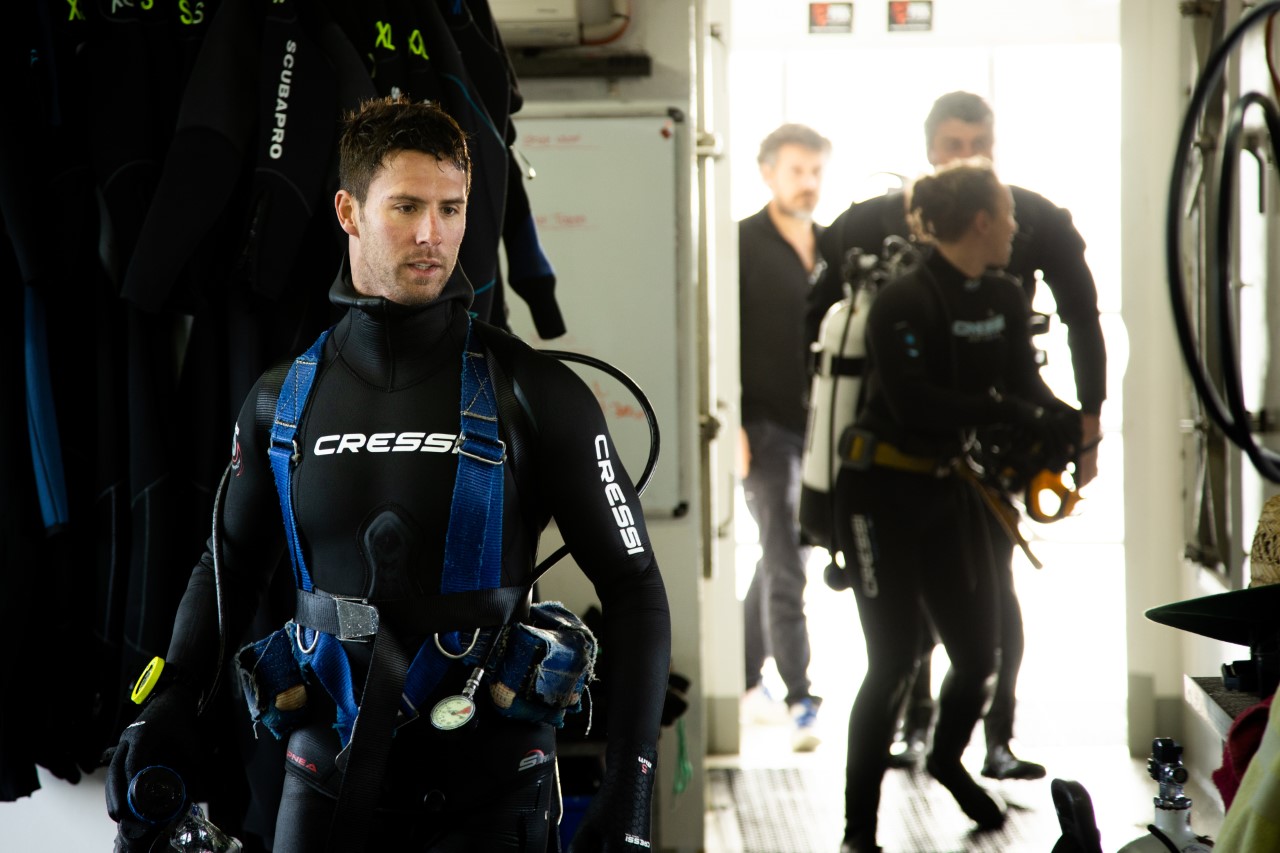
A new study led by Flinders University experts has tested the effectiveness of a newly developed, long-range electric shark deterrent on white sharks.
The 80 volts and 150 volts (V) versions of the novel Ocean Guardian BOAT01 were put to the test on 116 experimental trials on 43 white sharks (Carcharodon carcharias) at the Neptune Islands, South Australia.
While existing personal shark deterrents generally aim to protect the user within a few metres, this product is designed to protect a larger area (8 m deep × 6 m wide), or to be linked together for greater spatial coverage.

During these trials, Southern Shark Ecology Group researchers from Flinders University assessed the percentage of baits taken; distance between bait and shark; number of passes; and whether sharks reacted to the deterrent.
White shark behaviour was affected by both versions of the device, reducing the proportion of baits taken by sharks by up to 48%.
However, the effects of these products on distance were small, with shark average distance to the bait being 2-3 metres even when the device was turned on, says researcher Madeline Riley, a PhD in Shark Bit Mitigation Measures from the Flinders University Southern Shark Ecology Group and Global Ecology Lab.
"Our findings provide further evidence that electric deterrents can reduce the risk of a shark bite but the limited effective radius of this product restricts its use to protecting areas within approximately 3 metres - which is similar to that of other previously tested electric deterrents."

Marine ecologist Professor Charlie Huveneers, who leads the Southern Shark Ecology Group at Flinders University, says the manufacturer of the BOAT01 devices has since reportedly modified its circuitry and electrodes with the aim of producing a stronger electric field with higher voltage than the model tested in this study.
"Whether this new modified BOAT01 can deter sharks from farther away than measured in this study remains to be determined, and will likely depend on the extent of the electric field's propagation," says Professor Huveneers.

He says the results from this study provide empirical evidence to policymakers and consumers which enable them to select and implement appropriate mitigation measures for their intended use.






